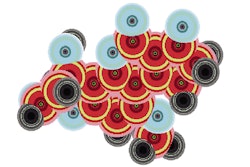These specialty stores continue to seek performance improvements, new investment and new management in pursuing turnaround opportunities, while several troubled specialty stores were bought in the summer by various private equity firms: for example, Petco, the pet supply retailer.
Specialty retail channel dynamics
Within the US market, consumer spending, a major driver of specialty retail sales, increased 2.6% in June 2006 compared to June 2005. While mass merchandisers like Wal-Mart and shopping clubs like Costco provide strong competition to specialty merchants by effectively creating large, low-cost specialty departments within their superstores, more and more specialty retail items are being bought from catalog and Internet retailers, which offer a broader selection of merchandise.
Overall, Internet retail sales increased from about US$20 billion in 2000 to more than US$100 billion.
Typically, specialty store products are bought based on seasonal occasions or around the end of the year for holiday gifts. Normally, specialty store sales are highest in third and fourth quarters, and merchants typically generate 40% of their business around the end-of-year holidays.
Valuable market research information
To create and keep traction, more malls and individual stores are issuing so-called "frequent buyer" cards that give discounts and other rewards once shoppers have spent a certain amount. In addition to building customer loyalty, such cards can provide valuable market research information about shopping habits.
Although many specialty retailers have established Internet sites on which customers can order products and make credit card payments, Internet sales as a whole amount to a small 2% of total US retail sales.
Some retailing specialties, such as books, are very suitable for Internet sales, but jewelry and low-cost items, such as petfoods, haven't sold very effectively on the Internet. Specialty retail stores are therefore hinged on being able to attract customers to the store, and once they're in the store, to offer personalized service and attractive merchandise that will compel the customer to buy.
Revenue-generating tools
Much of the business of specialty stores comes from repeat customers, and many stores have programs to engender customer loyalty. Offers that integrate pre-notice of sales, have special sale hours for loyal customers and mail customers to advise them of new merchandise are great revenue-generating tools.

















